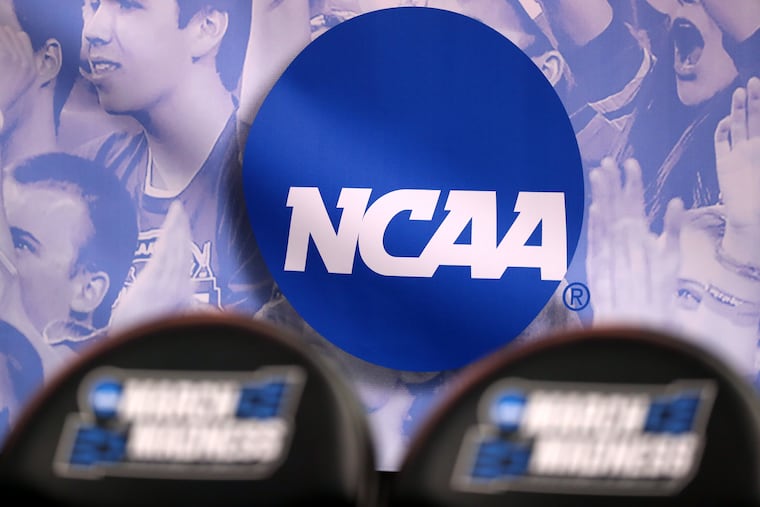It shouldn’t have taken SCOTUS to confirm student-athletes deserve to get paid | Solomon Jones
The NCAA’s strategy of using student-athletes to build a multibillion-dollar sports empire while refusing to pay those same athletes is wrong.

In a 9-0 decision, the U.S. Supreme Court has sided with college athletes who argued that the National Collegiate Athletic Association’s rules limiting student compensation were a violation of antitrust laws.
Three words: It’s about time. Not just because the NCAA’s century-old business model has grown increasingly exploitative as the money from television contracts and other revenue sources has made college sports into a multibillion-dollar business, but also because college sports, especially lucrative basketball and football, are dominated by Black athletes. In short, the court’s unanimous ruling in National Collegiate Athletic Association v. Alston did more than expose the NCAA’s questionable business practices. For anyone who was paying attention, the ruling also laid bare the NCAA’s dependence on structural racism.
» READ MORE: The Supreme Court isn’t buying what the NCAA is selling | Mike Jensen
Black athletes account for 46% of the players in the Power 5 conferences of the Football Bowl Subdivision — the top level of college football. When you include the other conferences outside the Power 5, the percentage of Black athletes jumps to 52. The numbers are equally skewed in basketball, where more than 56% of Division I male players in 2020 were Black, as were 46% of Division I female players.
Given that America was built with the unpaid labor of Black people, this should not come as a surprise. But, just in case you don’t see shades of Gone With The Wind in the crumbling of the NCAA’s plantation-like system, consider the words of Justice Brett Kavanaugh, who cited a brief by a group of African American antitrust lawyers in writing a concurring opinion on the case.
“College presidents, athletic directors, coaches, conference commissioners, and NCAA executives take in six- and seven-figure salaries,” Kavanaugh wrote. “Colleges build lavish new facilities. But the student athletes who generate the revenues, many of whom are African American and from lower-income backgrounds, end up with little or nothing.”
I was critical of Kavanaugh’s nomination and appointment in 2018, but in this instance, Kavanaugh is right. And the NCAA’s strategy of using student-athletes to build a multibillion-dollar sports empire while, at the same time, arguing that the athletes themselves should not be paid is wrong. The NCAA’s argument — that fans of collegiate sports would somehow be turned by athletes who played for anything more than the love of the game — is ridiculous on its face. That’s especially true when compared to other industries. Kavanaugh went there in his concurring opinion, and the result was hilarious.
“The NCAA couches its arguments for not paying student athletes in innocuous labels,” Kavanaugh wrote. “But the labels cannot disguise the reality: The NCAA’s business model would be flatly illegal in almost any other industry in America. All of the restaurants in a region cannot come together to cut cooks’ wages on the theory that ‘customers prefer’ to eat food from low-paid cooks. Law firms cannot conspire to cabin lawyers’ salaries in the name of providing legal services out of a ‘love of the law.’ Hospitals cannot agree to cap nurses’ income in order to create a ‘purer’ form of helping the sick. News organizations cannot join forces to curtail pay to reporters to preserve a ‘tradition’ of public-minded journalism. Movie studios cannot collude to slash benefits to camera crews to kindle a ‘spirit of amateurism’ in Hollywood.”
» READ MORE: EXPLAINER: The Supreme Court ruling against the NCAA
Again, Kavanaugh is right, but student-athletes still won’t be paid salaries for plying their trade. They will, however, be eligible for payments and other benefits related to education. And that’s still not good enough.
The talents of student-athletes, predominantly Black, produce untold riches for everyone but the athletes themselves. In order to fix that, we must go beyond discussing the exploitation that is built into the NCAA’s business practices. We must also discuss the fact that America’s colleges and universities have gladly gorged themselves at the trough of this racist system. We must discuss the fact that American media has enriched itself by securing advertising for its coverage of collegiate tournaments. We must talk about the fact that the student-athletes — many of whom never go on to play in the pros — are routinely cast aside after their physical usefulness is spent.
In a country where white colleges and universities initially kept Black athletes off the field of play while enforcing a Jim Crow system of segregation in sports, it is not enough to simply allow African Americans into the game. If these student-athletes are to truly benefit from their labor, they must ultimately, and finally, be paid.